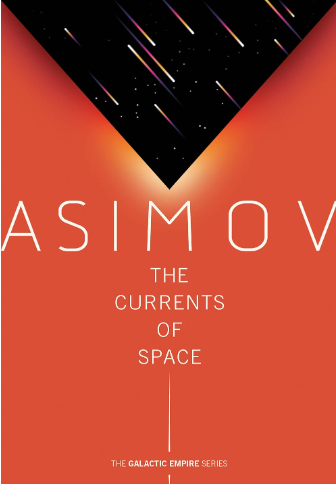The Currents of Space

Set in Asimov's expansive Galactic Empire universe, The Currents of Space follows a story of political intrigue and social inequality on the planet Florina. Florina is a small, agriculturally rich planet that produces a rare and valuable fiber called "kyrt," which is coveted throughout the galaxy. The planet is dominated and exploited by the wealthy Sarkites from the nearby planet Sark, while the native Florinians live in oppression. When Rik, a man suffering from amnesia, is found on Florina, he begins to uncover a secret involving the fate of the planet and a deadly cosmic force. As Rik slowly regains his memory, he realizes that the secret he holds could change the balance of power across the galaxy—and potentially save Florina from destruction.
Asimov weaves a compelling narrative that delves into the political and economic exploitation of an entire planet by a more powerful neighboring world. The themes of class struggle, colonialism, and economic dominance give the story a sharp socio-political edge. Readers who enjoy stories that blend science fiction with thoughtful social commentary will find this aspect of the novel particularly engaging.
The novel revolves around Rik’s lost memory and the dangerous secret it holds. As Rik gradually pieces together his past and the true nature of the "currents of space," the tension builds, keeping readers hooked as the mystery unfolds. Asimov's pacing and structure make it an intriguing read with a satisfying payoff.
Asimov creates an intricate universe with distinct planets, cultures, and political systems. The dynamic between the advanced, authoritarian Sarkites and the oppressed Florinians forms the backdrop for a story that examines how galactic empires and economic dependencies work. This world-building adds depth to the story, making it immersive without overwhelming the reader.
The Currents of Space is a highly engaging read that combines Asimov’s knack for science fiction with deep social and political themes. While it lacks the scale of his more famous novels, it’s an excellent example of early sci-fi with a strong central mystery and thoughtful exploration of power dynamics.